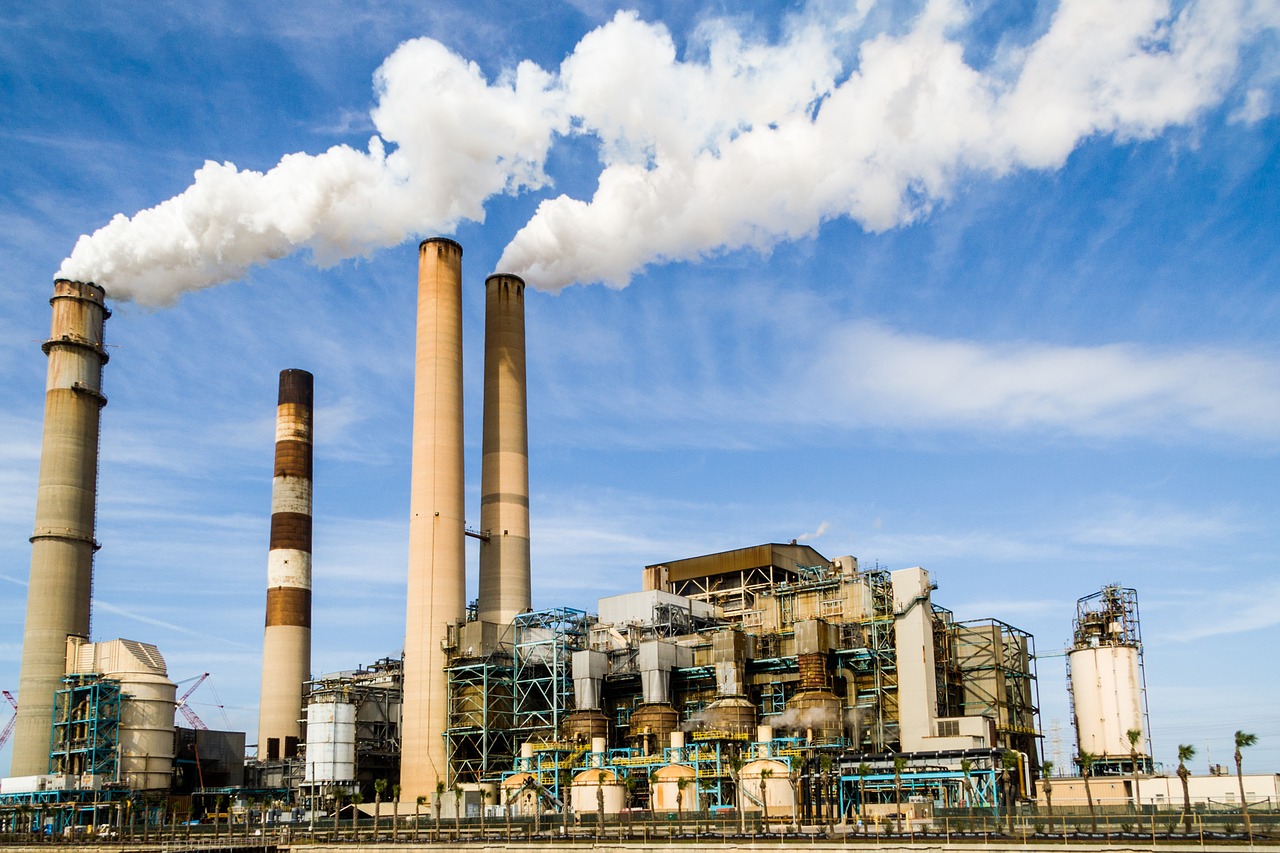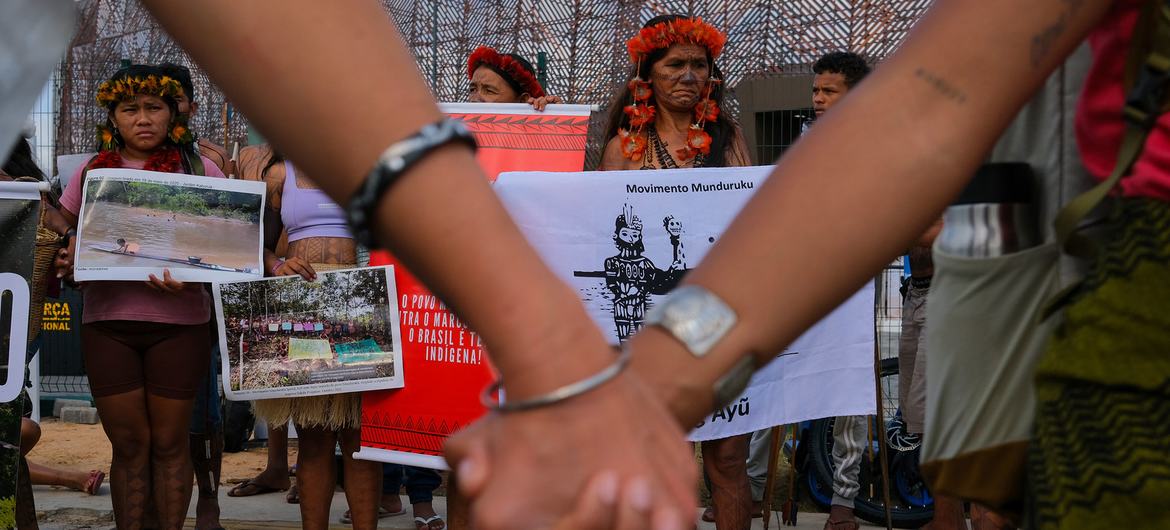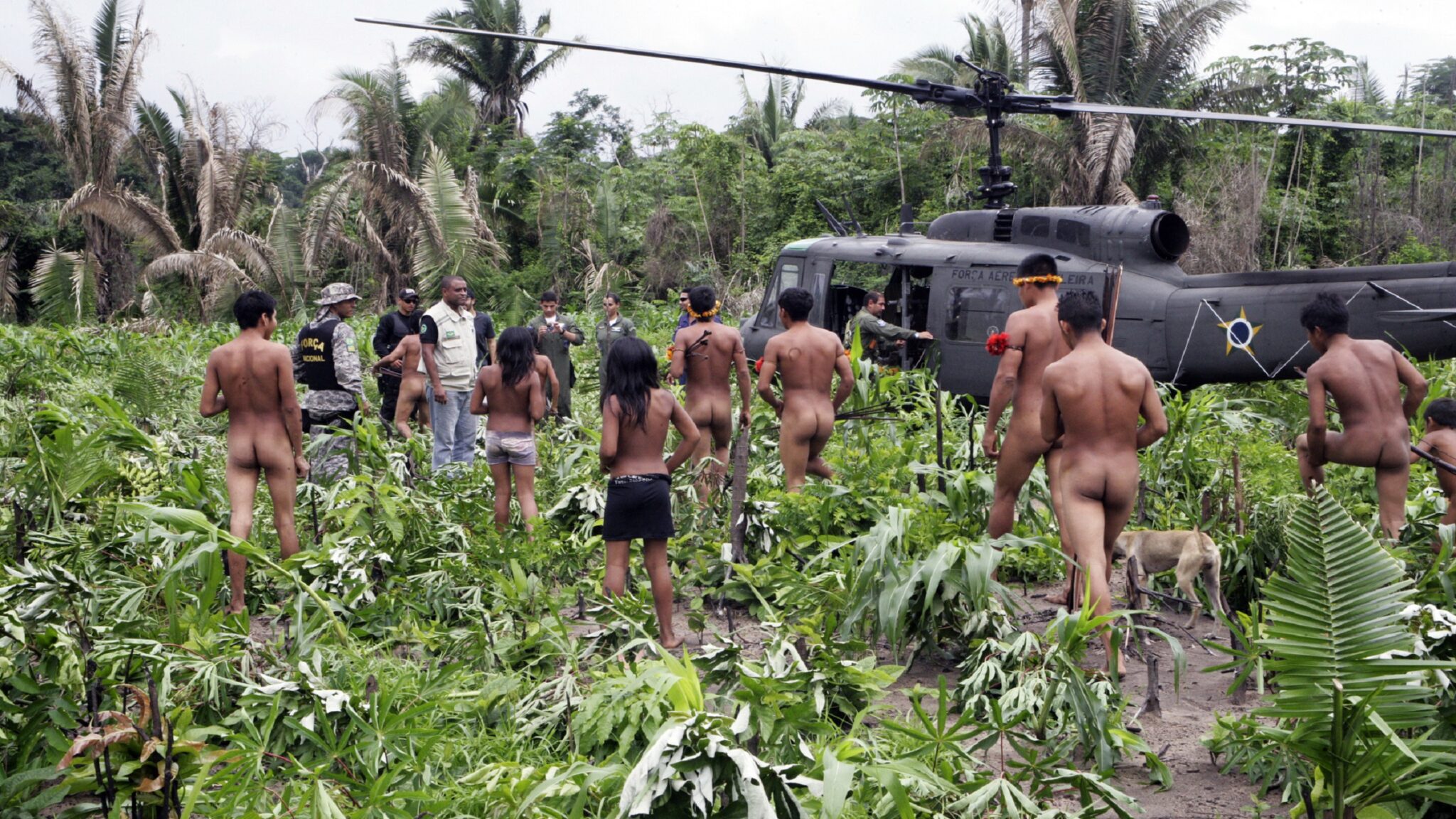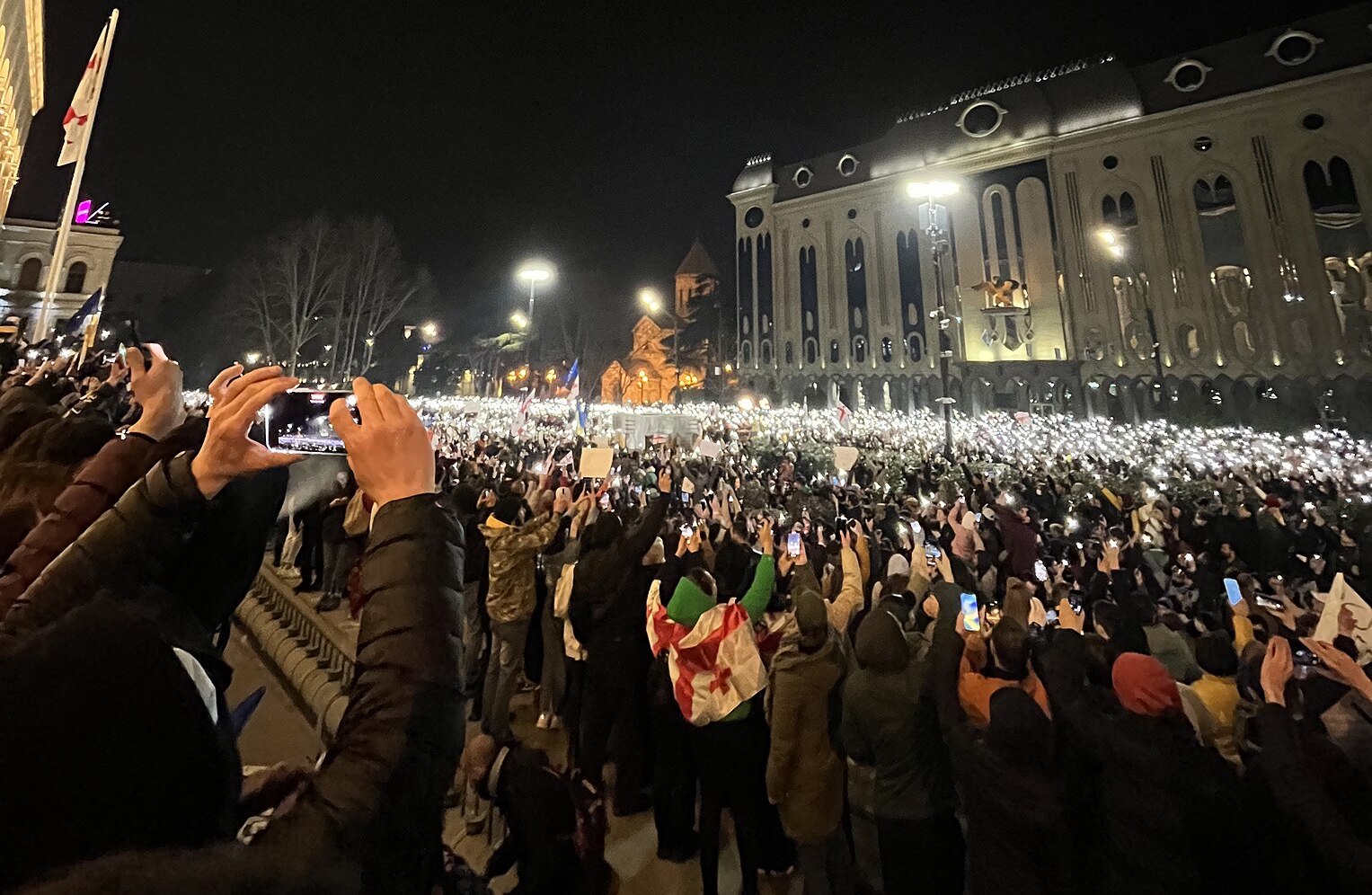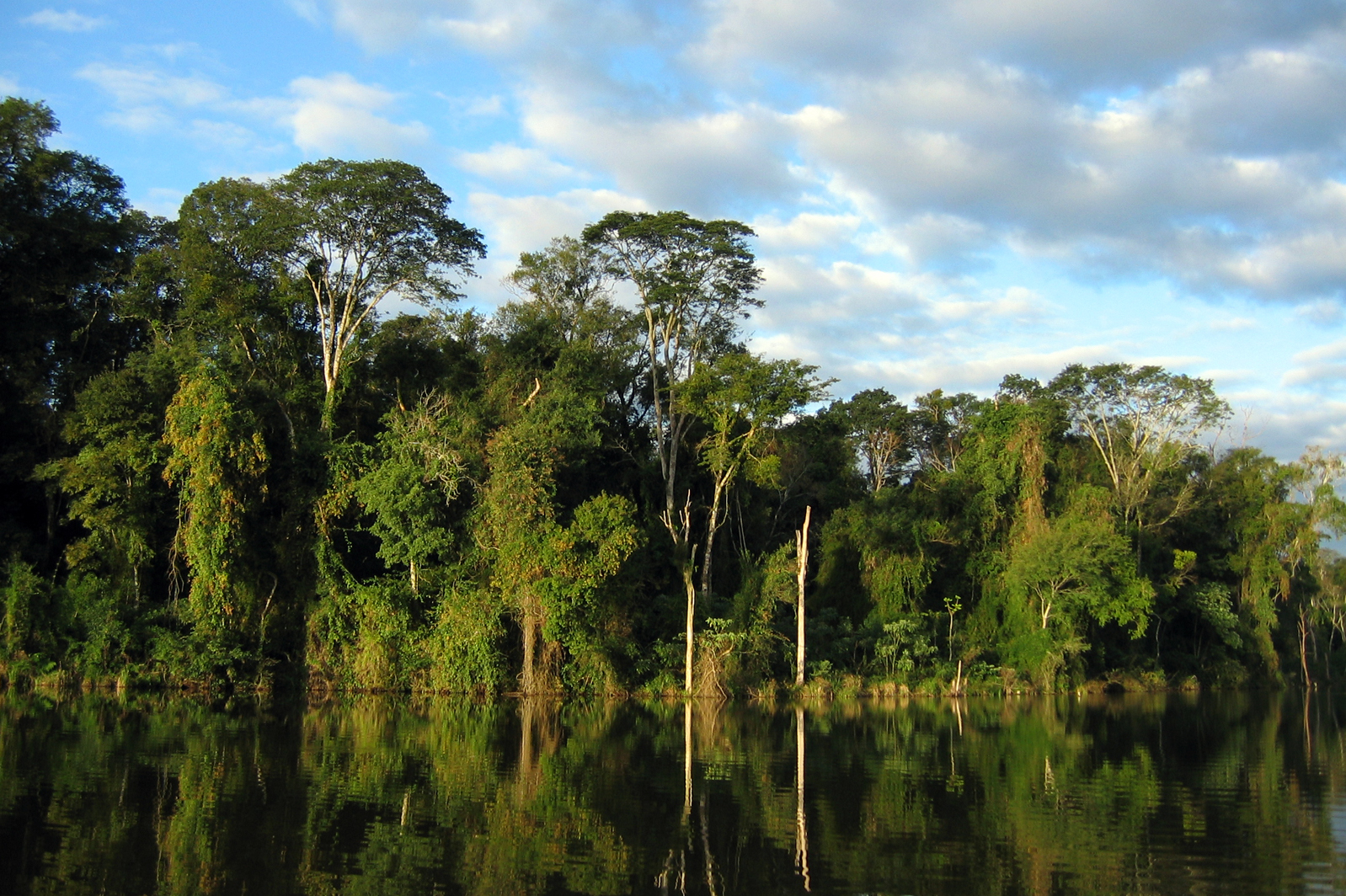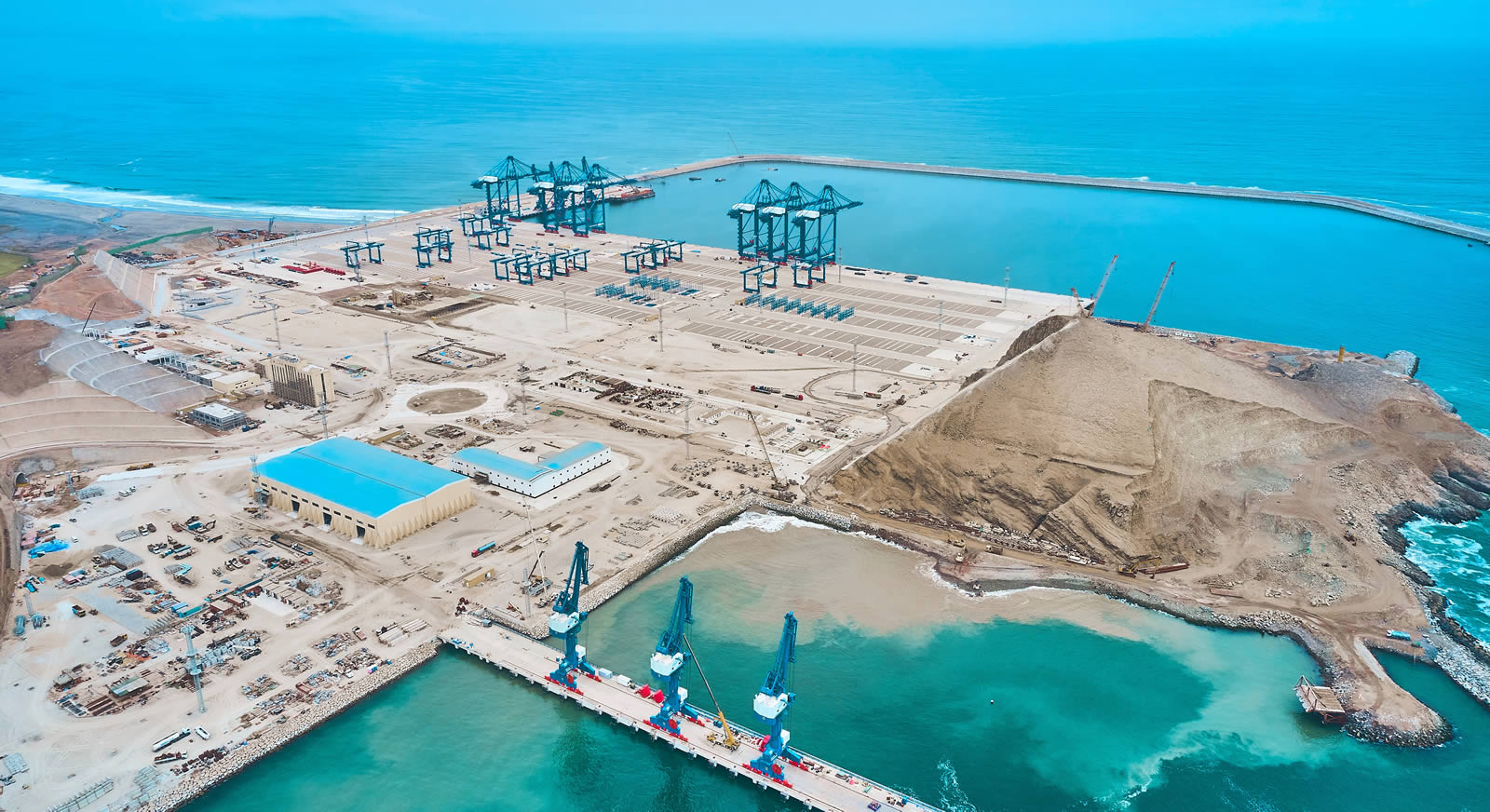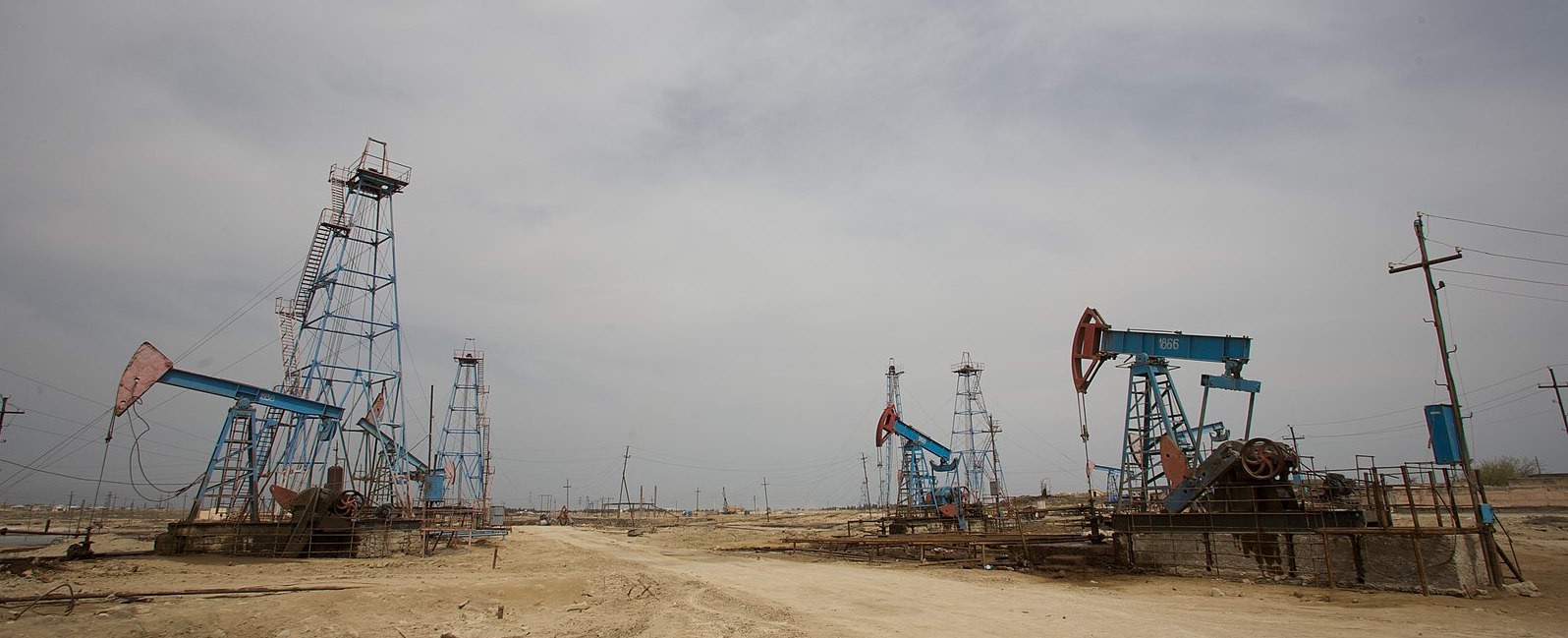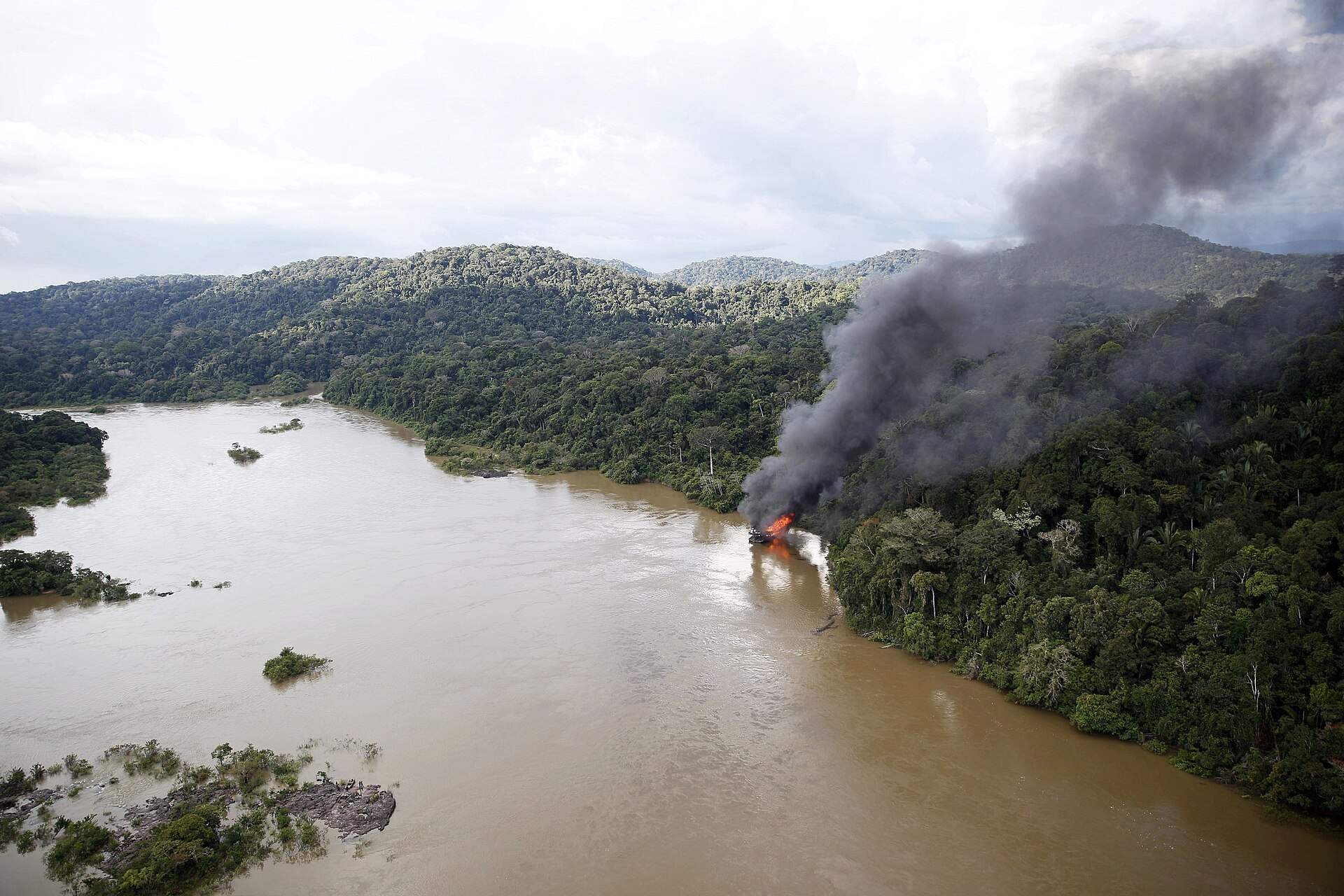
Cross-border crackdown on Amazon gold mining
Police and prosecutors from Brazil, Guyana, French Guiana and Suriname announced the arrest of nearly 200 individuals in a transnational operation to combat illegal gold mining in the Amazon. Backed by Interpol, the European Union, and Dutch police specializing in environmental crime, “Operation Guyana Shield” involved over 24,500 checks on people and vehicles across remote border areas. Officers seized large quantities of cash, unprocessed gold, and mercury, as well as firearms, drugs and mining equipment. Authorities said organized crime networks behind these operations are linked to a major Guyanese gold exporting firm. The operation signals a new enforcement posture, marked by cross-border collaboration to disrupt transnational networks that evade jurisdictional boundaries and exploit enforcement gaps across the Amazon border region. (Photo: IBAMA via Flickr)




